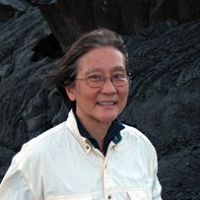Oshun et al., 2015
Dynamic, structured heterogeneity of water isotopes inside hillslopes
Oshun, J., Dietrich, W.E., Dawson, T.E., and Fung, I. (2015)
Water Resources Research
-
Eel, GRAD STUDENT
-
Eel, INVESTIGATOR
-
Eel, INVESTIGATOR
-
Eel, INVESTIGATOR
Abstract
Use of the stable isotopes of water (δD, δ18O) to determine vegetative water sources, runoff paths, and residence times generally assumes that, other than shallow evaporative enrichment, the isotopic composition of precipitation is conserved as it travels through the subsurface to the stream channel. Here we follow rainfall through a thick (up to 25m) vadose zone of soil, saprolite, and weathered bedrock mostly composed of argillite, and underlying a steep (32°) forested hillslope. We discover a persistent structured heterogeneity of water isotopes inside the hillslope. Summer dry season causes evaporative enrichment of the soil, but not in the saprolite and weathered bedrock. In winter, the mobile water, generated by successive rainstorms with widely varying isotopic composition, mixes in the vadose zone, elevating soil and rock moisture content, and eventually recharging the groundwater with isotopically invariant water similar to the seasonally averaged rainfall. Yet throughout the winter the less mobile winter soil and rock moisture remains relatively light, and water extracted from the interior of argillite lies well to the left of the local meteoric water line. This persistently light composition of soil and rock moisture and the deviation from average meteoric values suggest that subsurface fractionation, or the inheritance of paleo‐meteoric rock moisture associated with rock uplift may lead to large enduring isotopic differences between high and low mobility water. These differences suggest that the use of water isotopes as tracers must consider the possibility of subsurface isotopic evolution and the influence of exchange with more tightly held water.
Citation
Oshun, J., Dietrich, W.E., Dawson, T.E., and Fung, I. (2015): Dynamic, structured heterogeneity of water isotopes inside hillslopes . Water Resources Research. DOI: 10.1002/2015WR017485
Explore Further




